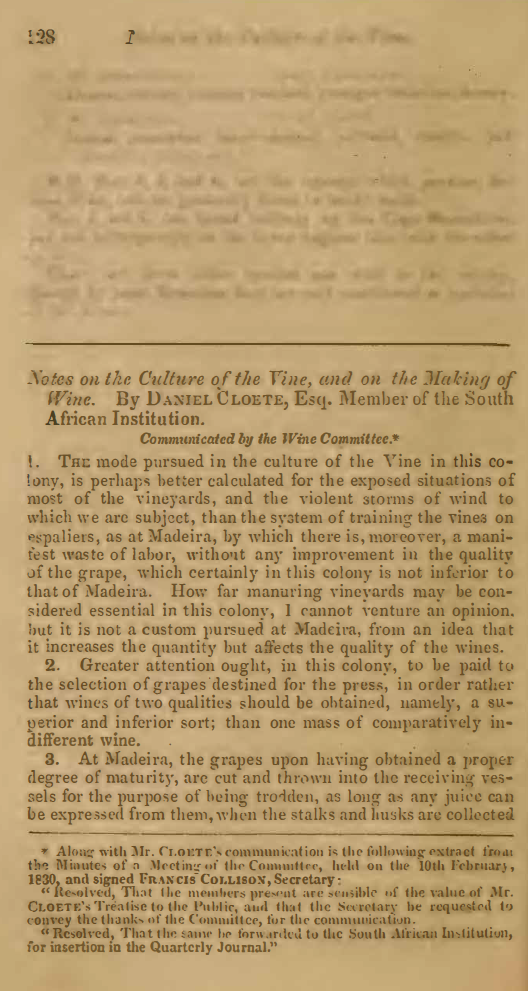Notes on the culture of the vine, and on the making of wine
DOI:
https://doi.org/10.21504/saqj.12.2633Keywords:
Viticulture, Winemaking, Fermentation, Cape Colony, Vineyards, Madeira, Wine Quality, Grape Selection, Brandy Treatment, Oenology, Agricultural PracticesAbstract
Communicated by the Wine Committee, and approved for publication in the Quarterly Journal of the South African Institution (Meeting of 10 February 1830; F. Collison, Secretary). Daniel Cloete’s paper offers one of the earliest systematic reflections on viticulture and oenology in the Cape Colony. Drawing from comparative observation between local practices and those of Madeira, Cloete evaluates the suitability of vineyard cultivation methods to the Cape’s exposed and wind-prone conditions. He argues that the training of vines on low supports rather than trellises is better suited to local climate, though he cautions that improved grape selection for pressing could enhance the quality of Cape wines. The paper describes in detail the winemaking process as practised at Madeira—covering grape crushing, fermentation, racking, and the treatment of casks with French brandy—and contrasts it with local customs. Cloete attributes the inferior reputation of Cape wines not to the grapes themselves, which he deems equal in sweetness and flavour to those of Madeira, but to improper fermentation methods, poor hygiene of fermentation vessels (“kuipen”), and neglect of environmental conditions affecting grape maturity.
He prescribes a series of corrective measures: maintaining cleanliness and full casks during fermentation, adding syrup or raisins to compensate for deficient saccharine matter in wet seasons, using well-brandyed casks to prevent acidity, and frequent racking through cloth to clarify the wine. He concludes by condemning the use of impure “Cape brandy” in winemaking, recommending instead the use of high-quality French spirits. Cloete’s paper reflects both empirical experimentation and early scientific thinking in colonial South African agriculture, contributing valuable insights into local adaptations of European vinicultural knowledge.
Downloads

